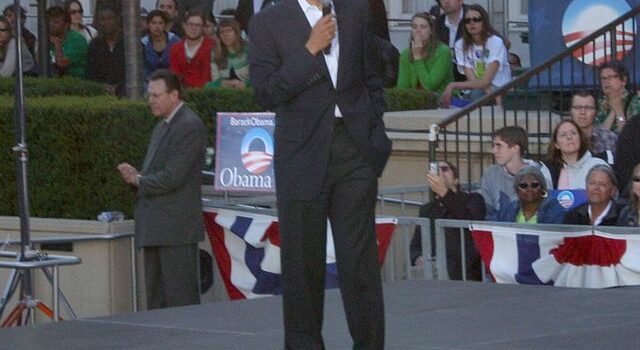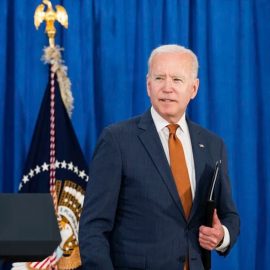

This article is an excerpt from the Shortform book guide to "A Promised Land" by Barack Obama. Shortform has the world's best summaries and analyses of books you should be reading.
Like this article? Sign up for a free trial here .
What was COIN? What was Barack Obama’s viewpoint on COIN and what did it mean?
For Barack Obama, COIN posed a lot of issues. COIN, also known as the counterinsurgency strategy, involved massive foreign investments on the part of the U.S.
Read more about Barack Obama, COIN, and Obama’s view on the strategy.
Barack Obama: Against COIN
Unfortunately, Obama’s surge in Afghanistan failed to produce the desired stability in the country. The security situation continued to deteriorate into the autumn of 2009 as the Karzai government proved largely ineffective in suppressing violence and maintaining order. The Taliban was gaining strength throughout the country and winning the loyalty of much of the rural population. Worse, elements of the Pakistani military were still harboring Taliban fighters and facilitating the escape of Qaeda fighters across the border.
In response, General Stanley McChrystal (whom Obama had appointed to replace General David McKiernan as commander in Afghanistan) proposed a counterinsurgency (commonly known as COIN) strategy. This was more than just another surge. It was a comprehensive exercise in nation-building, with massive U.S. investments in infrastructure and education. The immediate goal was to alleviate the poverty and despair that had made the country such a fertile breeding ground for religious extremism. The long-term goal was to build Afghan civil society from the ground up.
But Barack Obama was extremely skeptical of the COIN strategy. As with the plans he’d rejected earlier in his term, they would come at an enormous cost both in manpower (an additional 40,000 troops) and money (at least another $40 billion). He saw the possibility of getting mired in a war with no exit strategy that would carry on for the rest of his time in office and years afterward.
To his anger and dismay, McChrystal and Mullen launched a full-court press campaign to pressure Obama behind the scenes into giving them the green light. They gave public speeches and interviews to reporters in which they darkly warned that failure to deploy more troops to Afghanistan would result in a total failure of the U.S. mission.
A Politicized Military
The administration was outraged by the Pentagon’s attempt to pressure the president and by what they saw as its brazen interference in civilian politics. Vice President Biden—who had always been the most skeptical of the Pentagon—was particularly incensed. It was further proof for Barack Obama that COIN was doomed to fail.
In response, Obama summoned Secretary Gates, General McChrystal, and CJCS Mullen to the White House. There, he admonished the generals and their allies at Defense for attempting to force his hand. He asked them if their actions were motivated by contempt for him, his politics, and his administration. The men apologized to the president and insisted that they held him and his White House in high regard. The episode revealed just how powerful and arrogant many senior figures in the military establishment had become.
(Shortform note: For a personal account of General Stanley McChrystal’s experience as commander of the Joint Operations Task Force in Iraq, read our summary of his memoir, Team of Teams.)
It was true that members of the military gave the highest level of service to their country and were prepared to literally sacrifice their lives for the nation. Obama did not question that they deserved respect. But he also did not think that they deserved unconditional deference, even on matters of military strategy. In a democratic country like the United States, the military obeyed the orders of the civilian leadership, not the other way around. He noticed a disturbing contempt that many officers seemed to have for civilian politicians—especially politicians on the left or center-left like himself. They tended to believe that they shouldn’t have to answer or explain themselves to elected officials who’d never worn a uniform themselves.
It was clear that the military had developed a sense of entitlement due to the automatic deference it had been accustomed to receiving from large swathes of the public, the media, and politicians, especially after 9/11. But Obama reminded them that, though he may never have given military service, he was the commander in chief—and his orders would be obeyed.
In the end, Obama compromised with the Pentagon. Although he was incensed by their attempts to force his hand, he also recognized that they could not allow Al Qaeda and the Taliban to regain control in Afghanistan. In November, he agreed to a 30,000 troop surge (on top of what he’d already authorized in February). But in exchange, there would be an 18-month timetable for the withdrawal of U.S. forces from Afghanistan. The mission of the troops would be limited to helping the Karzai government achieve a basic level of security and conducting raids on Taliban strongholds.
(Yet about six months later, in an explosive Rolling Stone interview, McChrystal disparaged senior members of the Obama administration and questioned their competence to handle military affairs. Obama ultimately relieved McChrystal of his command in response to the general’s insubordination.)

———End of Preview———
Like what you just read? Read the rest of the world's best book summary and analysis of Barack Obama's "A Promised Land" at Shortform .
Here's what you'll find in our full A Promised Land summary :
- How Barack Obama went from relative obscurity to the first Black president
- What principles guided his political leadership style
- Why Obama retained an unshakable faith in the potential and promise of America






